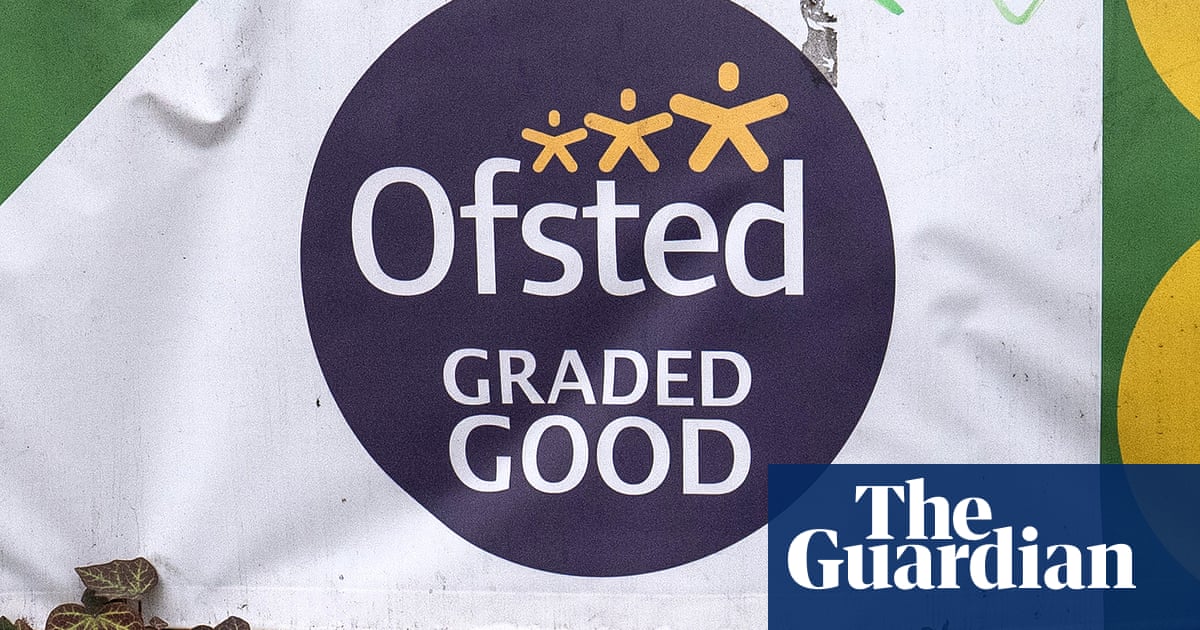
Single-word school ratings awarded by Ofsted in England are to be immediately scrapped, the government has announced. They will be replaced by report cards aimed at improving standards and helping parents better understand schools’ strengths and weaknesses.
The four headline ratings – outstanding, good, requires improvement and inadequate – will disappear as part of the radical changes. In their place, state schools inspected this academic year will be graded on quality of education, behaviour, personal development and leadership. Independent schools, early years settings, colleges and children’s social care providers will follow.
Here, three people tell us what they think about the landmark moment and how it will affect teachers, improve schools and drive up standards.
The Teacher
They could help schools be a source of pride in their communities
I look forward to what will hopefully be a more productive and supportive relationship between schools and Ofsted that will drive up standards for everyone, rather than heap stress and shame on stretched and overworked school staff. The idea that the rich tapestry of what a school does, be it academics, socialisation, family support, community engagement, can be boiled down to just a single word was always ludicrous.
I’ve been a primary school teacher for 11 years, have worked in middle leadership roles, and experienced two inspections. It’s not Ofsted themselves but the pressure around inspections and from society to be an ‘outstanding’ school. You know you’re doing a good job as a teacher but there’s a pressure to perform during the two days of inspection. You’ve tried your hardest but in that short space of time the inspectors have not been able to see everything. And at the end of it, one word is all that’s used as a headline judgment.
I think these new report cards will acknowledge more – the work school staff do – and give parents more information and choice. We need to be very clear about what it means to have high standards, though. It’s not just knowledge and facts but it’s about skills and preparing kids for the future. That’s how you drive standards up.
Being a teacher is not just about being in the classroom. There’s a whole lot of other things such as emotional support and outreach. I hope Ofsted will look more at how schools support parents and try to involve them as much as possible. They could even help schools be a source of pride in their communities, where parents feel a lot more engaged and see that it’s a school that makes an effort, not just with children but also the parents.
Carl, primary school teacher, Buckinghamshire
The parent
The single-word ratings were unhelpful, if not misleading
I’m a parent of three children aged three, eight and 13. I think this is a good idea and, given the distress this has caused headteachers especially, long overdue. I came across the ratings for the first time when we moved to Durham from Germany five years ago and had to find schools for our children. I was happy to find detailed reports about the local schools through the Ofsted reports but the single-word ratings were unhelpful, if not misleading.
The primary school my children ended up going to was rated “good” and is by far the best school I have ever set foot in. We chose the school because ‘good’ was good enough for us if everything else about the school was great. Thinking it would make a difference, I contributed a written statement during a school inspection saying that, as a parent, I enjoyed what they do and their approach. When I read the Ofsted report I didn’t understand why the school wasn’t found to be outstanding.
Our school is a small community with really committed teachers but all the work they do doesn’t translate into one word. They do so much for the kids but sometimes those things are not included in a report. School inspections have a huge impact on teachers but not really me as a parent. The teachers in our school don’t pass on any of the pressure of inspections on the kids which I think is an extra achievement.
Lisa Bicknell, 39, academic researcher, Durham
The former headteacher and Ofsted inspector
We need an inspection system that aims to support schools rather than judge them
This is an excellent move. I was a primary school headteacher for 14 years in Oldham. I was also an Ofsted early years inspector for a few years. I’ve had experience as a head dealing with unpleasant inspectors, and as an inspector seeing terror on the faces of young nursery staff. This was a big reason for me retiring as an inspector as I got fed up with seeing people frightened during inspections.
The headline judgments are so stark it’s impossible within that one judgment to give a true picture of a school. No school is outstanding as they all have issues to deal with; no school is totally inadequate.
You really feel the buck is with you as a head and it’s your fault if the school doesn’t do well. The consequences of being judged as ‘inadequate’ or ‘requires improvement’ are huge. The inspections strike fear into you – it was so stressful I used to look at my calendar and count the months before I could retire. I just wanted it over and done with. Even heads of schools who do well still look exhausted at the end of an inspection. It’s brutal.
As an inspector, I went in with the aim of being supportive. I tried to be reassuring and not frightening. During one inspection a woman said she had cleaned all the cupboards in her classroom and asked if I wanted to see them, I said: ‘No, no that’s not important.’ How you conduct yourself as an inspector can be reassuring or you can go in and ramp up the terror.
We need an inspection system that aims to support schools rather than judge them and these report cards could be a good thing. They should enable inspectors to give a better picture of the context in which schools operate. Schools are very different with distinctive priorities towards their local community and their children.












